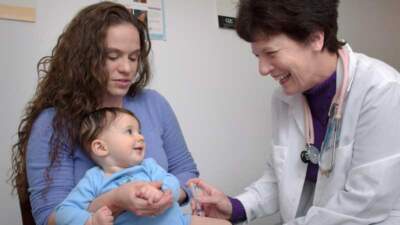As humankind forges ahead into an era shaped by modern medicine, the notion of vaccinations is frequently at the heart of global discourse. This essential immunological tool serves as a bulwark against an array of diseases, curbing their progression, and occasionally obliterating them from the face of the earth.
HPV
Prevent HPV-related cancer, get HPV vaccination
NewYork-Presbyterian, Columbia University Medical Center and Weill Cornell Medicine are among the nation’s top cancer centers calling for increased human papillomavirus (HPV) vaccination for the
Barriers to HPV vaccination among teens for cervical cancer prevention
Barriers to HPV Vaccination Among Teens – Barriers to human papillomavirus (HPV) vaccination among adolescents in the U.S. range from financial concerns and parental attitudes to social influences and concerns about the vaccination’s effect on sexual behavior.
One dose of HPV vaccine similar to three dose regimen
Fewer Doses of HPV Vaccine Result in Immune Response Similar to Three-Dose Regimen – Two doses of a human papillomavirus (HPV) vaccine, trademarked as Cervarix, resulted in similar serum antibody levels against two of the most carcinogenic types of HPV (16 and 18), compared to a standard three dose regimen.
US parents concerned about side effects of HPV for cervical cancer
More Parents Say They Won’t Vaccinate Daughters Against HPV, Researchers Find — Parents increasingly concerned about potential side effects, research shows – A rising percentage of parents say they won’t have their teen daughters vaccinated to protect against the human papilloma virus, even though physicians are increasingly recommending adolescent vaccinations. More than 2 in 5 parents surveyed believe the HPV vaccine is unnecessary, and a growing number worry about potential side effects.
HPV vaccine may benefit HIV infected women
Human papillomavirus (HPV) vaccine may benefit HIV infected women – Women with HIV may benefit from a vaccine for human papillomavirus (HPV), despite having already been exposed to HPV, a study finds. Although many may have been exposed to less serious forms of HPV, more than 45 percent of sexually active young women who have acquired HIV appear never to have been exposed to the most common high-risk forms of HPV.
HPV vaccine reduces HPV infection even in unvaccinated
HPV vaccine reduces infection, even in unvaccinated — Study shows evidence of herd protection – The HPV vaccine not only has resulted in a decrease in human papillomavirus infection in immunized teens but also in teens who were not immunized. The study is believed to be the first to show a substantial decrease in HPV infection in a community setting as well as herd protection ? a decrease in infection rates among unimmunized individuals that occurs when a critical mass of people in a community is immunized against a contagious disease.
HPV vaccine reduces subsequent cervical disease in women
Cervical disease sufferers could benefit from HPV vaccine – HPV vaccination does not reduce progression to cervical disease in women, but vaccinated women had less frequent subsequent cervical disease. Women who are diagnosed with pre-cancerous cervical conditions after receiving the HPV vaccine can still benefit from a considerably reduced risk of reoccurring disease.
HPV DNA testing for all women aged 29 years and above
The cervical cancer DNA test that could help cut cervical cancer deaths — HPV DNA Test ‘improves cancer screening’ – Implementation of HPV DNA testing in cervical screening leads to earlier detection of clinically relevant CIN grade 2 or worse, which when adequately treated, improves protection against CIN grade 3 or worse and cervical cancer. Early detection of high-grade cervical legions caused by HPV16 was a major component of this benefit.
Cervical cancer virus HPV linked to oral cancer rise
Study Shows Dramatic Rise in Incidence of Oral Cancer Type Linked to HPV – A new study of oropharyngeal cancer suggests that dramatic increases in U.S. incidence of the cancer and survival since 1984 can be attributed to infection with the human papillomavirus (HPV).


